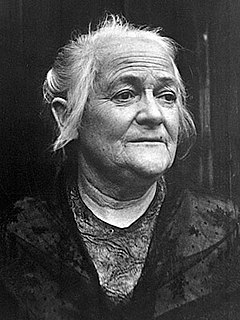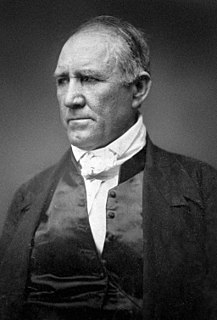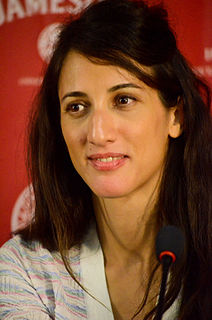A Quote by Clara Zetkin
Bourgeois society is not fundamentally opposed to the bourgeois women's movement, which is proven by the fact that in various states reforms of private and public laws concerning women have been initiated.
Related Quotes
Absolute Evil is not the kingdom of hell. The inhabitants of hell are ourselves, i.e., those who pay our painful, embarrassing, humanistic duties to society and who are compromised by our intellectually dubious commitment to virtue, which can be defined by the perpetual smear-word of French polemic: the bourgeois. (Bourgeois equals humanist.) This word has long been anathema in France where categories are part of the ruling notion of logique. The word cannot be readily matched in England or America.
I have ever been opposed to banks, - opposed to internal improvements by the general government, - opposed to distribution of public lands among the states, - opposed to taking the power from the hands of the people, - opposed to special monopolies, - opposed to a protective tariff, - opposed to a latitudinal construction of the constitution, - opposed to slavery agitation and disunion. This is my democracy. Point to a single act of my public career not in keeping with these principles.
The usage of the words "public" and "public sphere" betrays a multiplicity of concurrent meanings. Their origins go back to various historical phases and, when applied synchronically to the conditions of a bourgeois society that is industrially advanced and constituted as a social-welfare state, they fuse into a clouded amalgam. Yet the very conditions that make the inherited language seem inappropriate appear to require these words, however confused their employment.
Many women, particularly young women, have claimed the right to use the most explicit sex terms, including extremely vulgar ones, in public as well as private. But it is men, far more than women, who have been liberated by this change. For now that women use these terms, men no longer need to watch their own language in the presence of women. But is this a gain for women?
A materialist feminist approach to women's oppression destroys the idea that women are a 'natural group' . . . What the analysis accomplishes on the level of ideas, practice makes actual at the level of facts: by its very existence, lesbian society destroys the artificial (social) fact constituting women as a 'natural group.' A lesbian society pragmatically reveals that the division from men of which women have been the object is a political one . . .

































